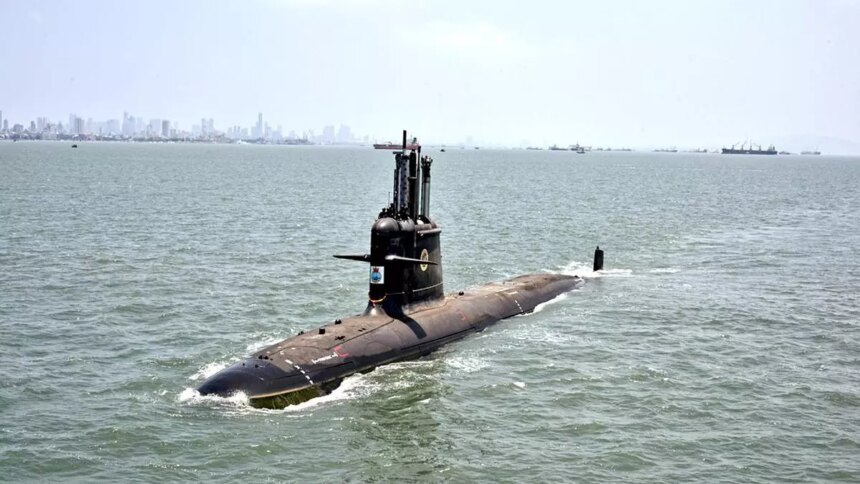India’s ambitious $6 billion project to develop submarines has hit a snag due to contractors raising concerns about whether the correct procedures were followed during sea trials. This setback is exacerbating the navy’s difficulties in enhancing its capabilities amid China’s increasing influence in the Indian Ocean.
The endeavor to construct six conventional diesel-electric submarines is now delayed by approximately a year, with further postponements anticipated, as disclosed by two senior officials familiar with the matter who requested anonymity due to the sensitivity of the information.
This development poses a significant challenge to India’s military modernization efforts and serves as a critical test for Prime Minister Narendra Modi’s recently introduced defense acquisition policy. This policy mandates that foreign manufacturers collaborate with local firms and share technology to facilitate the manufacturing of military equipment in India, which is recognized as the world’s largest arms importer.
German defense contractor ThyssenKrupp Marine Systems, in collaboration with India’s state-run Mazagon Dock Shipbuilders Ltd., and private shipbuilder Larsen & Toubro Ltd. paired with Spain’s Navantia SA, are vying for the project.
During the evaluation phase, various local contractors raised around six objections as the navy approached the decision point after essential field tests in June aimed at assessing vital technologies for the submarines. The specific identities of the companies involved were not disclosed. Each objection will require scrutiny before the procurement process can move forward.
The concerns raised included alleged breaches of protocol and insufficient clarity on conducting the sea trials. The timing and nature of these objections suggest a possibility that contractors might be attempting to delay the project due to apprehensions about losing the bid.
Neither the Indian Navy nor Mazagon Dock responded to requests for comments. In a statement regarding the evaluation of objections, L&T mentioned, “The field trial evaluation process is ongoing at the Ministry of Defence, thus we believe it would be inappropriate to provide further commentary at this stage.”
To advise the government on a final decision, the Ministry of Defence has convened a committee to evaluate the competing proposals.
Modi’s administration aims not only to reduce India’s long-standing reliance on Russian military systems but also to enhance the country’s capabilities in weapon exports. India’s current fleet of submarines is aging, with approximately half of its 16 Russian and German-made submarines having undergone multiple upgrades over the last thirty years and nearing the end of their operational lifespan.
The first of the six new submarines was initially expected to be operational by the early next decade, coinciding with the accelerated decommissioning of older Indian vessels. Additionally, India intends to construct two nuclear-powered submarines armed with conventional weaponry.
A successful submarine manufacturing initiative would not only bolster India’s military capabilities but also position the nation as a low-cost manufacturing hub for defense platforms, especially as demand for military hardware surges in Europe in response to the ongoing conflict in Ukraine.
Furthermore, India has reinforced its partnerships with various Western allies, including participation in the Quad alliance with the US, Australia, and Japan, playing a pivotal role in addressing China’s presence in the Indo-Pacific region.
Recent visits by German Chancellor Olaf Scholz and Spanish Prime Minister Pedro Sanchez to India included discussions on defense, particularly concerning Modi’s goal to enhance domestic manufacturing capabilities. A joint statement issued on October 25th remarked that both parties committed to supporting strategic exports to India and promoting co-development, co-production, and joint research among their defense industries.










